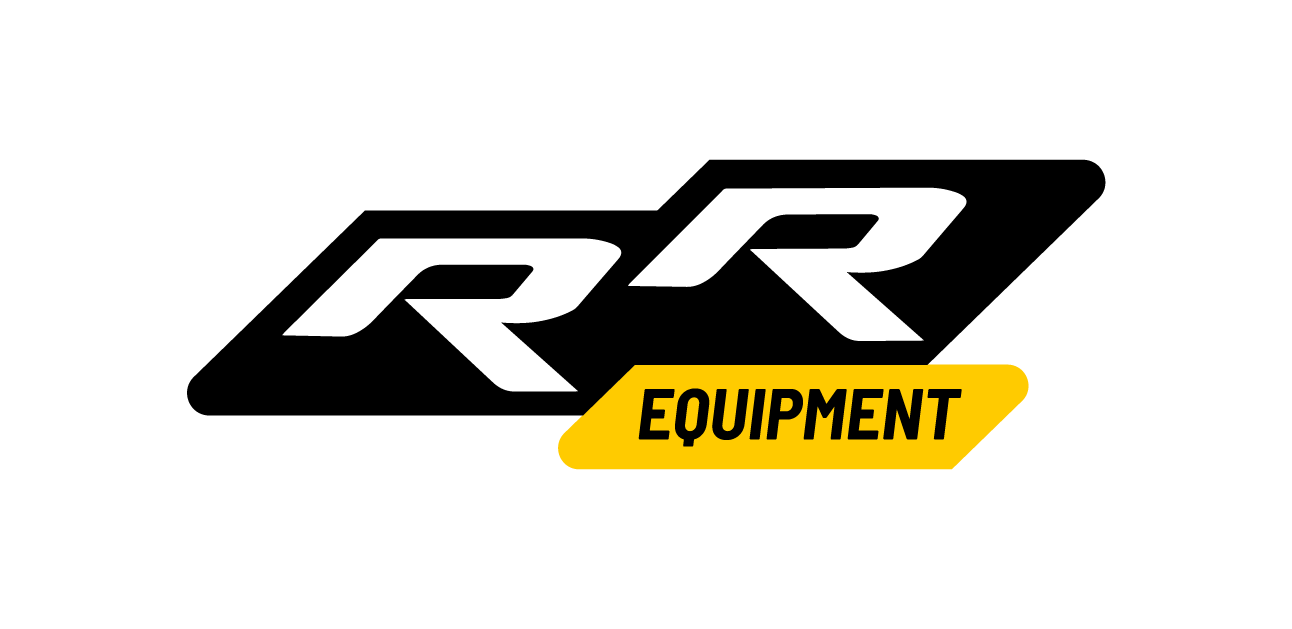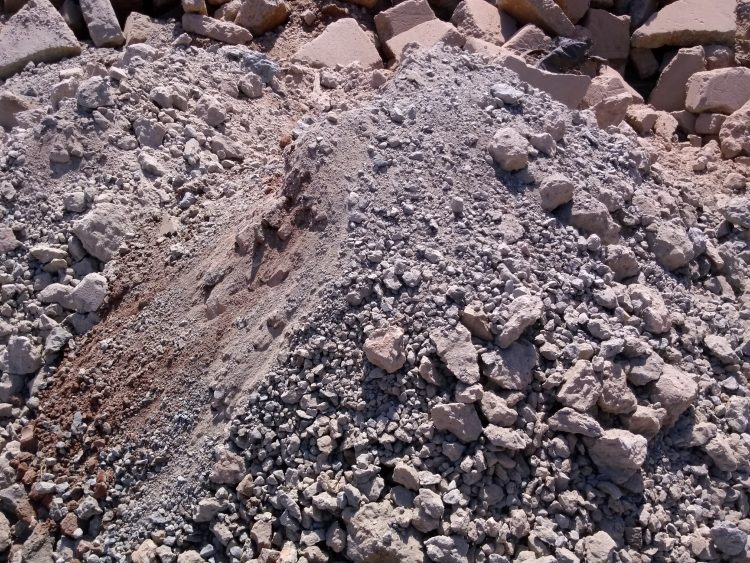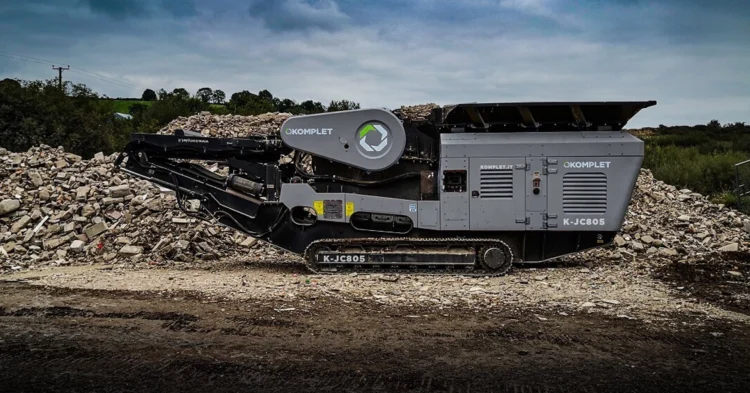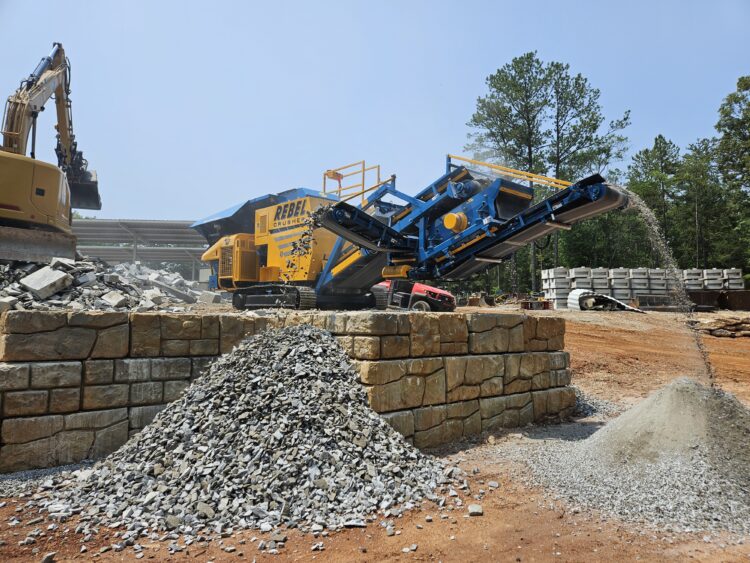Crushing concrete is an essential step in many construction, demolition, and concrete recycling projects. Choosing the best crusher for concrete depends on the size and type of material, as well as the desired output. This article explores different types of crushers and their advantages in concrete processing to help you determine which crusher is the best fit for your project.
What Type of Crusher is Best for Concrete?
The short answer is it depends on your project’s needs. Concrete can vary in density, rebar content, and desired end product. Different crushers are engineered for different results. Below, we’ll review the most common options.
Using Jaw Crushers for Concrete
Jaw crushers are often the first choice for large, heavy concrete chunks.
How they work:
A fixed and moving jaw plate compress the material until it breaks down.
Best use cases:
Primary crushing of oversized concrete, foundations, and demolition debris.
Advantages:
- Can handle very large feed sizes.
- Simple design with lower operating costs.
- Effective at breaking concrete with embedded rebar (when paired with rebar separators).
Limitations for “traditional jaw crushers”:
- Produce a higher percentage of coarse material Many modern jaws are specifically designed to produce a blend of material that is like crushed stone base material. It’s important to know that not all jaws are created equal. Similarly, not all impact crushers are created equal. When selecting the right crusher, it’s important to review manufacturer specifications and videos to ensure the machine produces the material you desire.
- Bulkier and heavier than other crusher types.
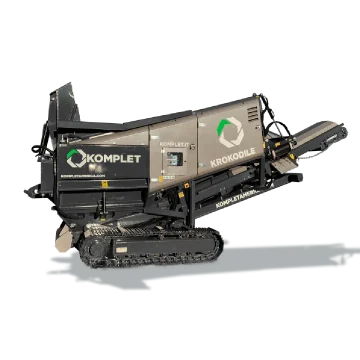
Impact Crushers for Concrete
Impact crushers are designed to produce a finer gradation of material with more dust and powder.
How they work:
High-speed rotors throw concrete against breaker plates, fracturing it into smaller pieces.
Best use cases:
Recycling concrete into smaller and finer sizes like powder and dust.
Advantages:
- Excellent at producing finer material.
- Can shape aggregate more spherical for specific applications. Many models are mobile or track-mounted.
Limitations:
- Wear parts (like blow bars) need more frequent replacement.
- Less ideal for very large chunks of unprocessed concrete.
Shredders for Concrete and Other Materials
Shredders are gaining popularity and are now being used to crush concrete with rebar and asphalt. Technically, a shredder is not a crusher, but its versatility makes it valuable in applications beyond traditional crushers.
- Versatility: Shredders can process materials that crushers typically cannot, such as wood, C&D debris, tires, and softer materials. If you need one machine that can handle both hard and soft materials, a shredder should be considered.
- Material output: The trade-off is that shredders don’t produce material as uniform or as small as jaw or impact crushers. Most shredders generate approximately 3–5″ minus material. Pairing a shredder with a screening plant can refine sizing, but the percentage of oversized material will generally be higher than with a crusher.
- Efficiency: Shredders are usually slow speed, simple, and efficient. They often don’t require a feeder system and can handle much larger pieces of material without significantly increasing machine size or cost.
- Cost savings: Because shredders can accept larger input, operators may eliminate the need for a preparation machine. This reduces overall jobsite investment and costs.
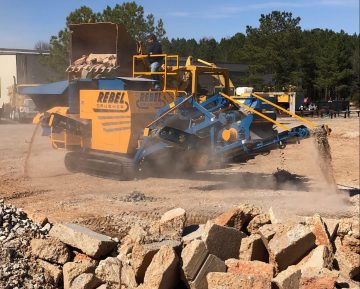
Frequently Asked Questions (FAQs)
What is the best way to crush concrete?
The best way depends on the material size and your output requirements. For large chunks, a jaw crusher is ideal. For finer aggregate, an impact crusher may be consdiered.
Can an impact crusher handle concrete with rebar?
Yes. Many modern impact crushers are built with rebar handling in mind. Units with magnets help remove embedded steel.
What size of concrete crusher do I need?
Crusher size should match your project. Portable or track-mounted crushers suit small to medium jobs, while stationary units are better for large-scale operations.
Can concrete crushers handle other materials like asphalt?
Yes. Many concrete crushers can also process asphalt, brick, and mixed demolition debris.
Choosing the Best Crusher for Concrete
Selecting the best crusher for concrete is crucial for project efficiency and cost-effectiveness. Whether you need a jaw crusher for heavy-duty primary crushing and versatility or an impact crusher for finer aggregate sizing, the right equipment can make all the difference.
Contact us to discuss your project and let our team guide you to the best crusher for your needs. You can also check out our Rebel Crusher, the most versatile crusher on the market today. A Rebel Crusher can be equipped with a jaw or impact crusher allowing users maximum flexibility and versatility.
